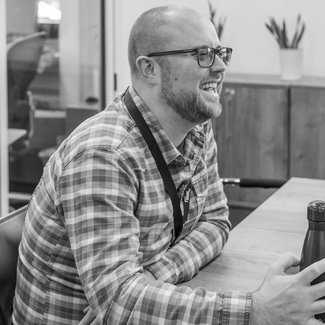On September 28, the amazing Island Innovation invited Edge to chair a session at the Virtual Island Summit (#VIS2022). At previous summits, we’ve been pleased to showcase excellent educational practices from islands around the globe. This year, we were excited to explore islands as leading educational research hubs. Here’s a brief taste of what we learned.
Index:
- British Isles: Vocational learning during the pandemic
- Jersey: Evidence-based curriculum redesign
- Scotland: The impact of child poverty in island communities
- St Lucia: Shaping government policy via teacher-led innovations
- Find out more
British Isles: Vocational learning during the pandemic
Edge’s senior education and policy researchers, Dana Dabbous and Kat Emms, presented a fascinating report exploring how British island colleges adapted vocational courses for online delivery during the pandemic. While looking specifically at islands, many lessons apply to mainland colleges, too.
Due to shorter, less frequent lockdowns, the research found that islands were more able to adapt online delivery to focus on theory. Students found this beneficial but missed practical elements, particularly in hands-on subjects. This suggests that while vocational learning can take certain aspects online, physical teaching spaces remain key. In a hybrid model, how can we re-evaluate physical spaces to ensure they cater to both online and offline needs?
The research also found numerous links between the benefits and challenges of online learning. Accessibility of resources, for example, was a key determinant for successfully delivering vocational courses online. Islands were able to respond faster to student needs but simultaneously struggled with poor internet connectivity. And while online learning allowed flexibility, it pressured teachers to be available to their students 24/7.

Jersey: Evidence-based curriculum redesign
Highlands College is the only FE College on the island of Jersey. Despite a strong reputation, Highlands found its qualifications were outdated, while many graduates felt unprepared for the future. In partnership with Edge, they commissioned Lynne Rogers, educational researcher at UCL, to assess the international education literature. UCL’s report, 'Redesigning the Curriculum', explores global best practice in areas ranging from global citizenship to future and digital skills, health and wellbeing, and mentoring.

The full report outlines numerous findings, including compelling evidence to support tutoring and mentoring if these are targeted appropriately. It also highlighted the uplifting effect of global citizenship education on academic achievement and the development of social, emotional and employability skills.
Using the report’s insights, Highlands has redesigned its curriculum to focus on future skills using student-led pedagogies. All underpinned by a new qualification framework, using digital credentials awarded by City and Guilds. Being an island has gifted Jersey with the agility to adapt international research to its local context – a valuable lesson for all islands.
Scotland: The impact of child poverty in island communities
Dr Jane Atterton from the Rural Policy Centre at Scotland’s Rural College shared some recent research exploring child poverty in Scotland’s rural and island communities. The study investigated several issues, including the factors causing and amplifying child poverty, the data that shines a light on child poverty, and where gaps lie.

The outcomes identified several factors contributing to child poverty in island settings. These ranged from limited affordable housing and reliance on private transport to higher food costs, poor digital connectivity, and reduced access to employment and education opportunities. Underpinning much of this was that income and cost of living are anywhere from 15-30% greater on islands compared with urban areas.
The research also found that existing data targets large geographic areas, therefore failing to identify local poverty hot spots. Recommendations include supplementing existing quantitative data with rural exchange hubs to collect people's lived experiences. Doing so would better inform place-based policies and tackle hard-to-answer questions, such as why island communities often fail to access social security.
St Lucia: Shaping government policy via teacher-led innovations
Our final speaker was Angel Caglin, Curriculum Specialist at the Department for Education, Innovation and Gender Relations in St Lucia. Angel explained how the recent success of several early years programmes on the island has led to the creation of the St Lucia Education Innovation Lab.
St Lucia has recently piloted several teacher-led social innovation programmes, including early learning diagnostic tools and language and linguistics resources. The Lab, therefore, is premised on the idea that teachers are best placed to understand the innovations required to address local needs. By embedding innovations into the education system, it aims to empower teachers to shape policy at the ministry level. Piloting is a valuable aspect. It helps identify the adaptations necessary for different contexts while exploring how school leaders can scale teacher-level innovations to school, district or national levels.
By decentralising the system, Angel hopes countries like St Lucia can seize bottom-up opportunities to progress educational priorities across the Caribbean.

Find out more
While these insights offer just a taste of the event, you can access the full recording of the session here.
As organisations like Edge, both in the UK and around the world, aim to drive education forward on islands and the mainland alike, there is much that policymakers and academics can take from the wealth of educational research taking place in island settings.

